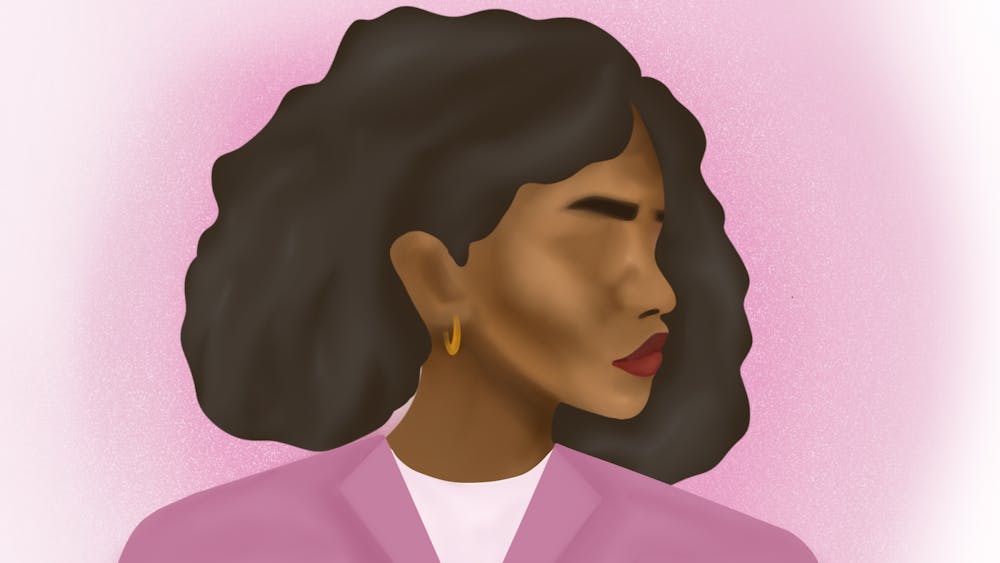Culture is important in the Black community. Everything from hair to language and so much in between can — and often does — have a cultural meaning of some sort.
But in America, Black people are often criticized for our culture.
At Mystic Valley Regional Charter School, north of Boston, a high-profile example of this occurred. Twins Mya and Deana Cook, two young Black girls, were given detention, banned from prom, prevented from participating in extracurricular activities and threatened with suspension simply because they were wearing hair extensions in their braids.
There was a time in my life when I was embarrassed to wear my hair naturally because of comments my peers and teachers would make. I remember in elementary school being asked to move to the back of the room after my classmates joked and complained that my hair was “too big” and “in the way."
There have been countless instances of Black men and women suing their schools and workplaces for discrimination against them based on their hair.
The first case was in 1976, and the U.S. Court of Appeals for the Seventh Circuit ruled that under Title VII of the Civil Rights Act, workers had the right to wear afros — their natural hair — at work.
Asking someone to change their hair to fit a “dress code” may not seem like a problem rooted in oppression and racism. However, when the only students being penalized by the code are Black and Brown students, it becomes an issue of race.
In the aforementioned case of Mystic Valley Regional Charter School, this hypocrisy was on display. Mya and Deana were punished because their braids violated the school’s ban on hair extensions, but several white students at the school had also worn hair extensions and not been punished.
When confronted with this information by the twins’ parents, the school administration said those students were not in violation of the dress code because the extensions weren’t as obvious, though they were very clearly wearing hair extensions.
This issue really boils down to respectability politics.
Respectability politics is a school of thought that says in order to be respectable, marginalized groups must ascribe to a certain standard set by the dominant group. Due to events in our history, that dominant group is white people and the marginalized groups in question are BIPOC.
This is what’s at play when a Black person is told or feels they need to dress a certain way, wear their hair a certain way or talk a certain way at their job or around people they want to impress.
It is also what is beneath the surface when a Black person is accused of talking or acting “white.” To be respected, BIPOC often feel the need to reach the standard of white people.
By doing so, we are insinuating that any other culture besides “white culture” is inherently not deserving of respect and is not professional. Conforming perpetuates the idea that whiteness is the highest standard of respect and professionalism.
This further instills systems of racism and oppression into our country’s economic and social communities.
“In my opinion, respectability politics is a form of assimilation and oppression within the sub-conscience,” said Tiera Howleit, IU senior and founder and president of Black Collegians. “In essence, you are agreeing to lower your values and ideals in order to make others feel comfortable in their own."
When Black people were brought to the Americas, we were forced to adapt to and accommodate white society in order to survive.
“Obedience to a system, regardless of its treatment, has always been at the functionalities of this country,” Howleit said.
In order to continue to break down those systems of racism and discrimination in our nation and in our world, we must also take into account the lesser recognized, but equally as effective, respectability politics. They must be broken down as well.
Howleit points out that our current education system is very one-sided. For the most part, it is defined and determined by the white male perspective. To change that, and effect change on respectability politics as well, we must start with education.
“We can change the standards of respectability through the education and knowledge of other cultures, and with the understanding of how history has shaped our current societal positioning,” Howleit said. “By diversifying the education system as it pertains to courses and materials, we can begin to tear down the walls that force us to conform and uphold respectability politics."
Black and Brown people, you do not have to conform to the standards set by white society in order to be respected. You are enough.






